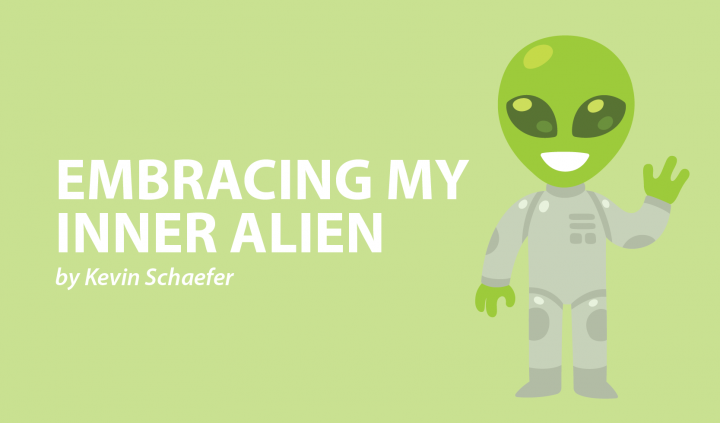How SMA Affected My College Transition
Written by |

As I’ve written in previous columns, my college years were some of the best years of my life. I discovered my passion for journalism, made lifelong friends, became more independent, and most of all, I acquired the perfect nickname: Schaef-Dawg. Credit to my former student newspaper editor for giving me this prestigious title.
For all the adventures I had, the mistakes I made, and the lessons I learned during my time at NC State University, the biggest adjustment I had to make was the initial transition stage. I went from growing up and going to school with the same people, having an adult aide with me, and everyone being familiar with my needs to being thrust into a huge campus with entirely different disability accommodations. I knew from day one that I would need to be proactive if I was going to succeed in college.
Fortunately, I had the advantage of going to a school that was 15 minutes from my house. I was able to commute all four and a half years, and from the time I started my freshman year, I already knew a fair amount of people. Between friends from church, high school, and even people I went to elementary and middle school with, plenty of familiar faces were around who helped compensate for my lack of a full-time aide. Before college, my aide, Nan, worked with me from when I was in seventh grade to my high school graduation. Bless her for putting up with me when I was 14.
Yet, while it was helpful to have people I already knew and hired notetakers with me in class through the university’s disability services department, I also knew that I would need to branch out and meet new people. It helped that my service dog was with me and opened doors for numerous conversations with other students, including many pretty girls.
As I made new friends and joined student organizations like my school newspaper and InterVarsity Christian Fellowship, the next step was to make my new friends aware of my physical needs. By this point, I had become more open about discussing SMA with people; I knew that I had to be in order to receive the help I needed.
For instance, anytime I wanted to grab lunch with someone, I had to provide a full explanation of how my arm-strength was extremely limited and give the person I was with a rundown of how to help me. The instructions I would give were as follows: To drink, place a large cup directly in front of me, prop both my hands on the lid of the cup, get my hands as close to my mouth as possible. To eat, place my sandwich or bagel in my hands, allow me to chow down, and help me make further adjustments when necessary. Eventually, this routine became second nature for my close friends, but explaining it to someone new was always a bit annoying.
Things are significantly different now with my JACO robotic arm, a device that has transformed my independence; but back then I was totally reliant on other people to help me eat, drink, move my hands toward my iPad, and do pretty much anything other than drive my wheelchair.
Relying on people I had just met to help feed me was no doubt a potential barrier to my self-confidence, but the bigger challenges came as I became more involved in campus life. With InterVarsity, the campus ministry in which I participated throughout my time as a student, there were out-of-town retreats, events at other people’s houses, and other off-campus get-togethers.
Rather than exclude me from things that were otherwise inaccessible, this community sought to accommodate me as much as possible and include me in these events. For retreats, the staff made it so that my dad could come with me and ensure that where we were staying had disability accommodations; for events at other people’s houses, friends carried me inside; for off-campus events, friends gave me rides in my family’s van. I didn’t ask for this kind of abundant love and support, but it was given to me anyway.
SMA had a profound impact on my transition to college, but it didn’t stop me from pursuing the things I loved and from forming relationships that continue to this day. When life and circumstances are overwhelmed by weakness, sometimes all it takes is a little strength to carry on.
Do you have any tips or questions regarding the transition from high school to college? Check out the SMA News Today forum post about this topic.
***
Note: SMA News Today is strictly a news and information website about the disease. It does not provide medical advice, diagnosis, or treatment. This content is not intended to be a substitute for professional medical advice, diagnosis, or treatment. Always seek the advice of your physician or other qualified health provider with any questions you may have regarding a medical condition. Never disregard professional medical advice or delay in seeking it because of something you have read on this website. The opinions expressed in this column are not those of SMA News Today, or its parent company, Bionews Services, and are intended to spark discussion about issues pertaining to spinal muscular atrophy.








Leave a comment
Fill in the required fields to post. Your email address will not be published.